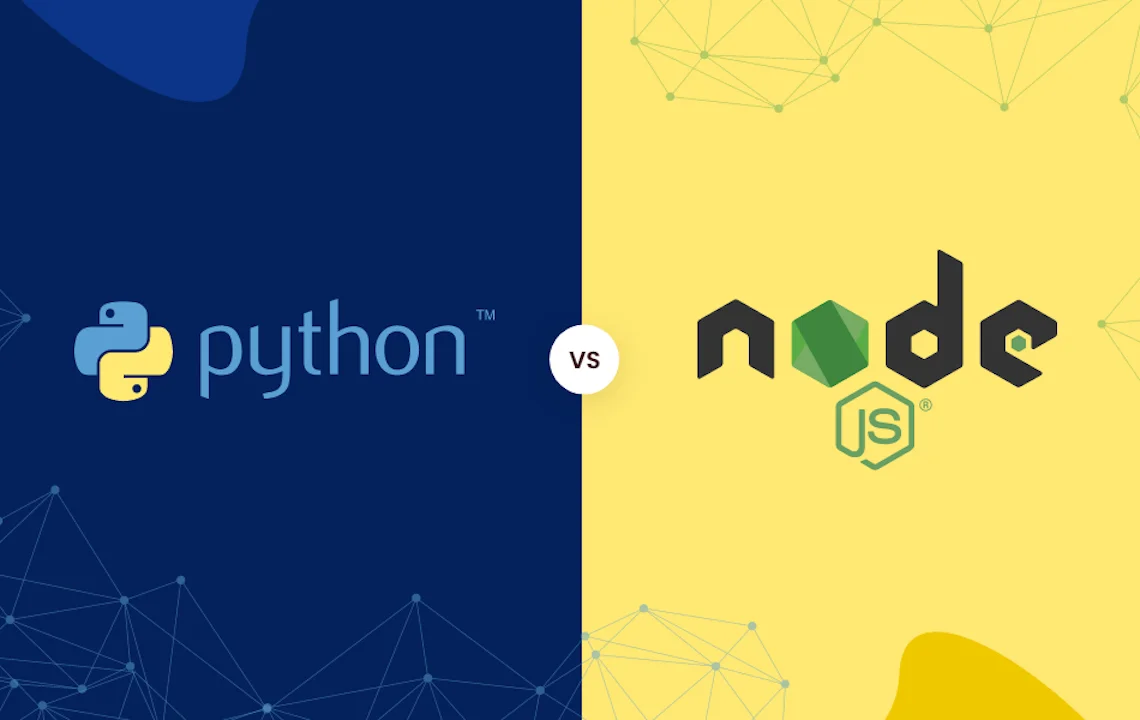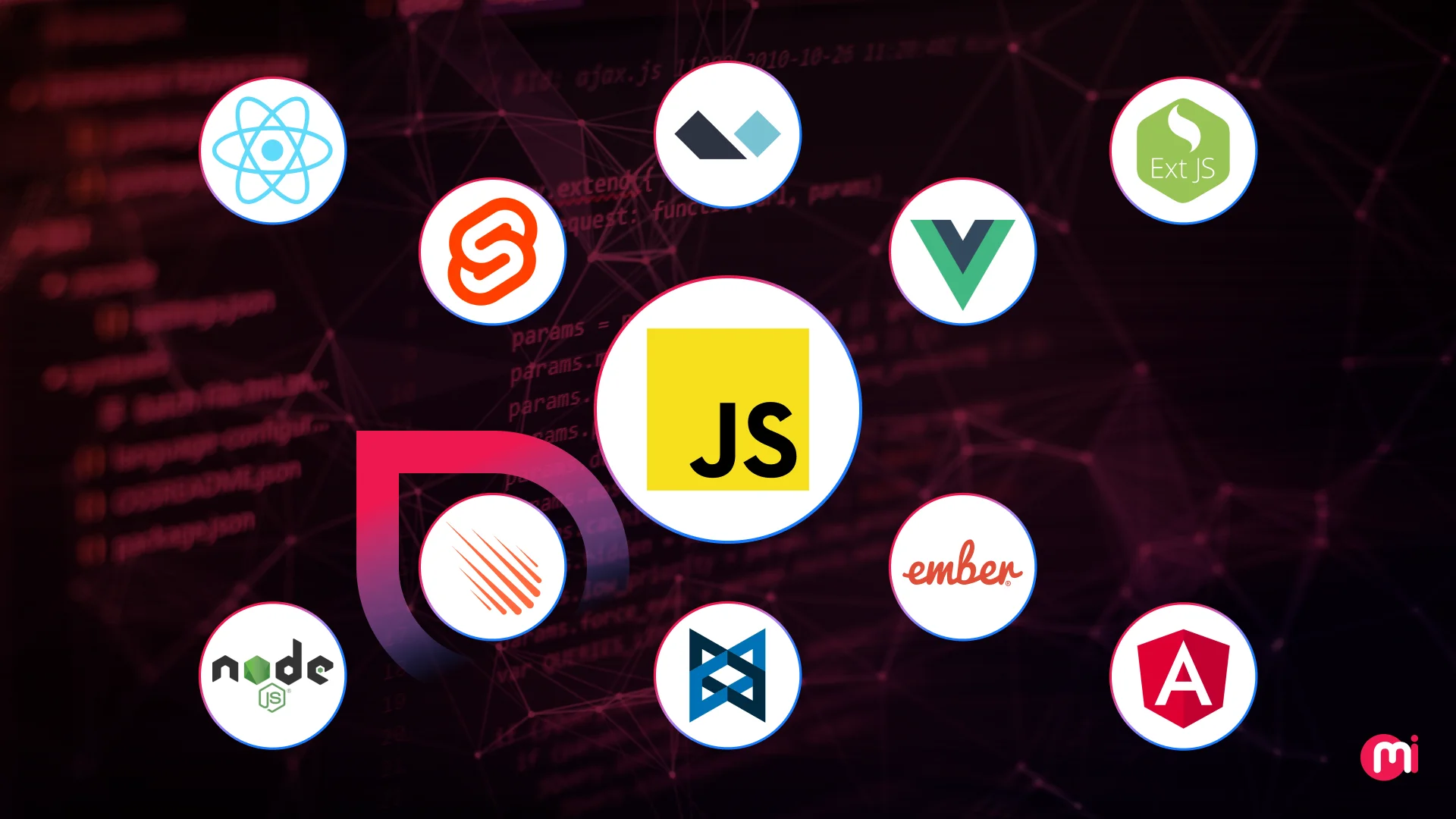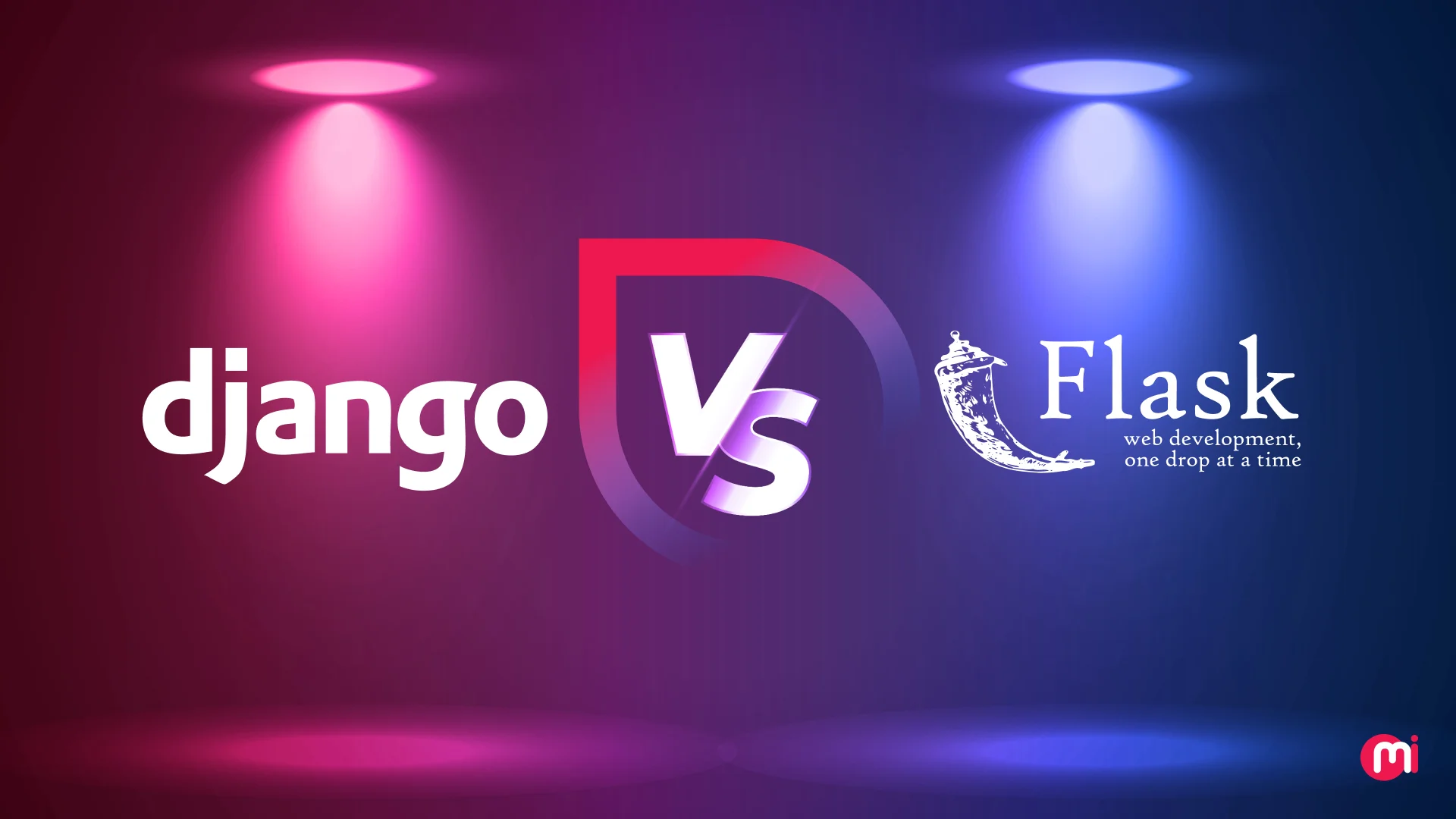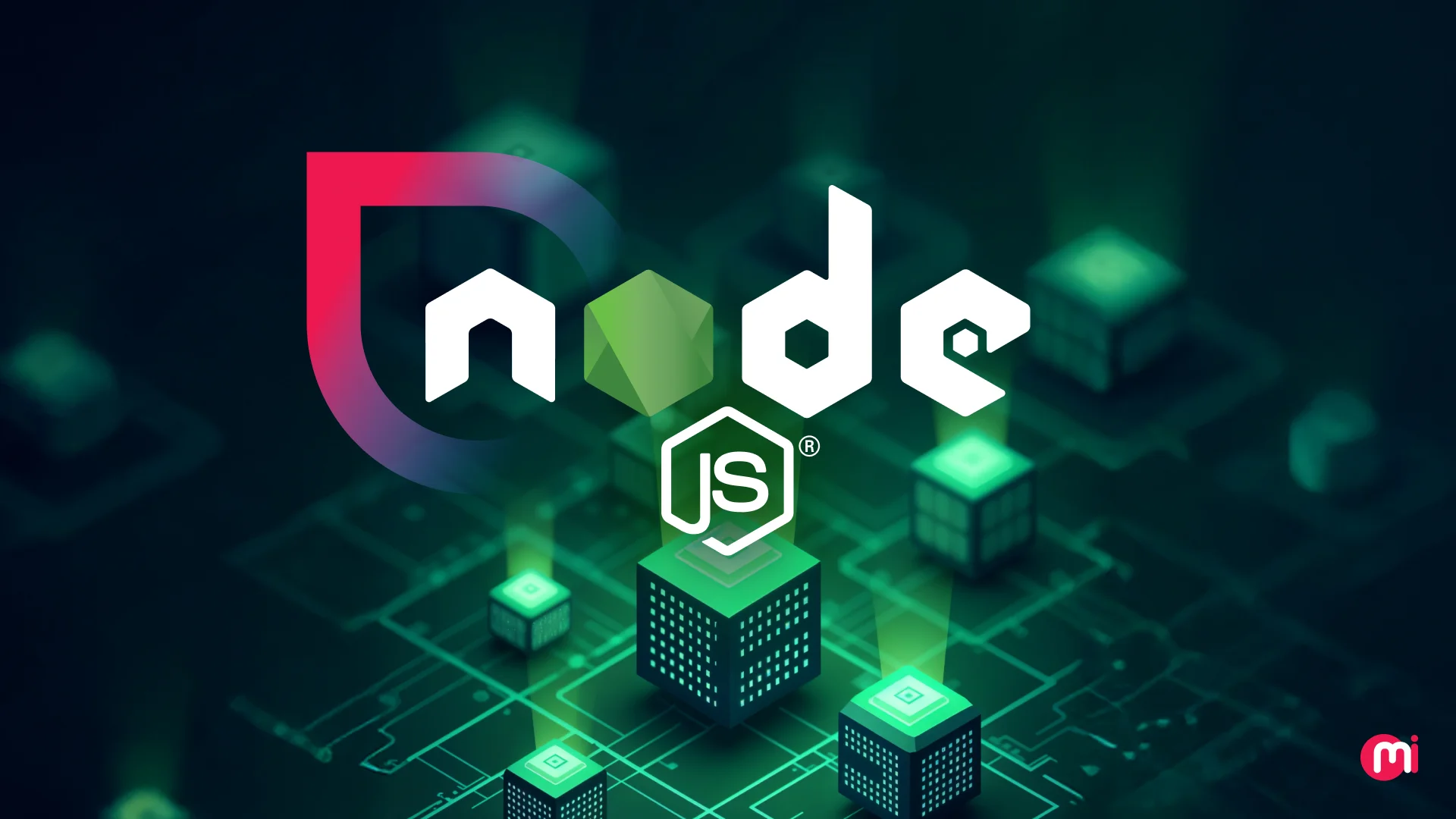Python vs. Node.JS: Which One is Best for Your Project?
- Web
- March 6, 2020
You must decide to choose the right programming language when you are developing an app or building a project. Since each project has different needs and specifications, you should opt for the right technology for coding it.
Comparing Node.JS and Python, choosing a backend technology is one of the main problems that should be fixed before going for a development project.
In this blog, we will be neutral about choosing the winner by comparing the advantages, downsides of both Python and Node.JS, so you can select the best fit for your project.
Before jumping on the comparison of Python and Node.JS, let’s have a look at why the selection of technology does matter for your project!
Why the Choice of Technology Matters?
You can get your friends’ recommendations regarding what technology to select, ask developers their preference, or browse the answer online. You will get different opinions from different sources, but you won’t know which option is the best fit for your project.
Every tech framework and programming language is made to meet particular project targets and that is the primary criteria to build your preference. Don’t just choose the popular one. Your tech stack preference must be deliberate and should depend on your capacities and requirements:
- Budget
- Geography
- The type of product
- The type of project
There can be more on this list, but you should take each feature of your future product detail consideration while selecting a technology you will utilize for app development.
With the comparison of Python and Node.JS for backend development, you will get to know how technologies differ by their benefits and application areas.
Python vs Node.JS
Before discussing the specifics, we must explain what we are comparing. Node.JS is not a programming language, but Python is. JavaScript is Python’s language whereas, for JavaScript, Node.JS is a runtime environment.
The basic difference between Python and Node.JS is that you utilize a similar language for both the backend and frontend when you write in Node.JS. Without further discussion, let’s have a detailed comparison between the two.
1. Speed & Performance
Node.JS
The performance of Node.JS is notable because JavaScript code in Node.JS is interpreted with the V8 engine. Node.JS applies the code outside a website browser.
Thereby, the application performs better and is more resource-efficient. Moreover, this permits you to utilize features that you can’t use in a browser like TCP sockets.
Node.JS features a non-blocking event-driven architecture that allows many requests simultaneously, which speeds up code application. And ultimately, in Node.JS, single module caching is enabled, which eradicates app loading time and makes web apps more responsive.
Python
Both JavaScript and Python are usually slower than compiled languages like Java, and they are interpreted languages. However, Node.JS wins in this case. Python is single-flow, unlike Node.JS, and requests are more slowly processed.
Hence, Python is not a better option for applications that give priority to performance and speed or engage many complex calculations. Hence, Node.JS web apps are faster than Python web apps.
Since Python is slower, Node.JS wins in the case of speed and performance.
2. Scalability
Node.JS
You must be seeking a lot of new people to utilize your apps with no obstacle. Scalability is an app’s ability to assist a huge number of users with no error in its performance.
Through Node.JS programming, scalability can be accomplished as it builds asynchronous architecture in one thread. This JavaScript framework’s default feature makes sure the seamless scalability of the app written in Node.JS code.
Using the Node.JS framework, easy web applications can be developed with total assurance for scalability. To offer a similar convenience in the complex application, you will require hiring Node.JS app developers who have complete knowledge regarding this.
Python
Python, on the other hand, doesn’t support asynchronous programming by default. Thereby, the architecture of Python is not similarly scalable like Node.JS. However, it includes tools that provide the Python development company with the means to achieve scalability seamlessly.
Since Node.JS offers easier scalability in comparison with Python, it wins in this case.
3. Architecture
Node.JS
With an event-driven environment, Node.JS enables asynchronous input or output. A specific procedure is called as early as that particular event happens; thereby, no procedure hinders the thread. Node.JS’s event-driven architecture is highly favorable for building web games and chat apps.
Python
As compared to Node.JS, Python is designed differently. Python can be used for developing event-driven and asynchronous apps using special tools.
Modules like asyncio help write asynchronous code in Python. However, this library is not created in maximum Python frameworks and it needs some extra activities.
Node.JS again comes to the first point due to this event-driven architecture.
4. Learning Curve
Node.JS
The measurement of users’ capacity for writing code in a specific framework or language is the learning curve. It explains web app developers’ fluency in tools and syntax.
If you know JavaScript, you can easily learn the Node.JS framework. Due to its easy to learn feature, Node.JS is on the topmost position in the list of the most famous framework with a noteworthy score of 49%.
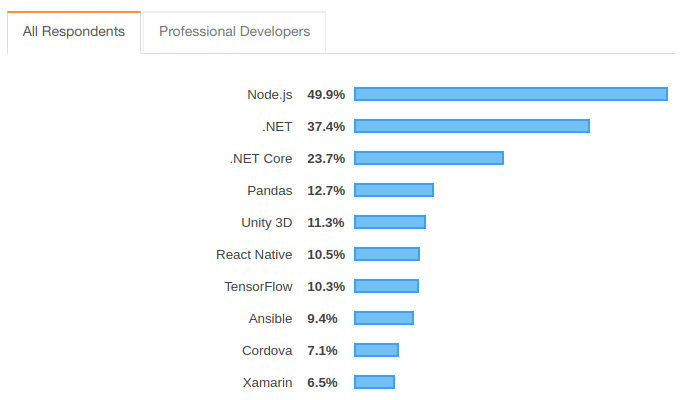
Python
Python language, on the other hand, is not written in a popular language like Node.JS. Hence, its syntax is unknown to the python developers.
However, it has a compact and cleaner code and a person can write that code easily as they don’t need to write a lot of lines. In Python, some code lines can help you reach a similar outcome as Node.JS.
Furthermore, since it’s not a new language, it has built documentation properly. So, when it comes to Python, you won’t run short of knowledge if you are a software developer.
According to a survey done by the StackOverflow, Python is one of the most preferred languages. Full stack developers prefer using this accurate, simple, and efficient language for app development. You can explore more python use cases to understand how it supports a variety of development needs across industries.
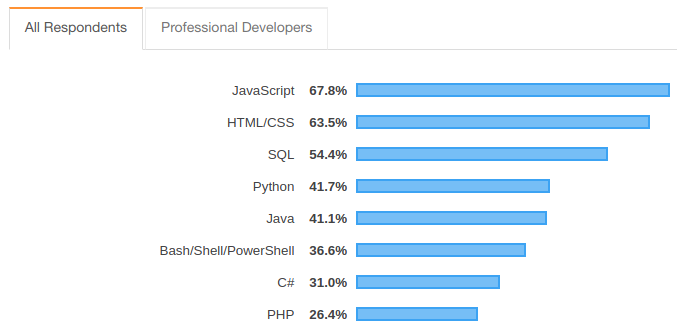
So, in a nutshell, Python is easier to learn than Node.JS if JavaScript is unknown to you.
5. Syntax
Node.JS
The syntax is usually a matter of personal choice. If you try to find the better or worse one, you will experience lots of skepticism and criticism.
The main fact is that the syntax of Node.JS is much similar to JavaScript of the browser. Hence, if you know JavaScript, you won’t face any hurdles with Node.JS.
Python
Sometimes, the syntax of Python is considered its biggest benefit. When it comes to coding in Python, software developers don’t require writing lots of code lines, unlike Node.JS.
Syntax of Python is quite easy and free of curly brackets also. This is why code is quite easier to debug and read.
Python code is easy to read and understood by clients from a tech background. However, it also relies on personal choice.
Ultimately, Python wins in this case because Python’s syntax is easier to learn and understand for newbie developers.
6. Appropriate Projects
Node.JS
For small projects in website or web app development, you can use Node.JS. Web development companies are not recommended to utilize this JavaScript framework for large projects because it has the inadequacy of clear coding standards.
Python
Python is appropriate for a wide range of projects from numerical computations, web applications, to network programming and machine learning. It’s a perfect programming language for performing different tasks.
Python has different frameworks that you can use for backend like Pyramids, Flask, and Django. Moreover, it consists of frameworks like PySide or Tkinter that you can use at the frontend.
Python’s accurate coding makes it perfect for large projects. Hence, if you want to develop a large project, you should hire Python developers. But if you run a startup or small business, you can hire Node.JS developers.
7. Extensibility
Node.JS
You can easily customize, extend, and integrate Node.JS with different tools. You can extend it using in-built APIs for building DNS or HTTP servers. You can also integrate it with Babel that assists in frontend development with the browser or Node’s old versions.
Log.io is useful for error fixing and project monitoring, and Jasmine is useful for unit-testing. For module bundling, process management, and data migration, you can use Webpack, PM2, and Migrat.
You can expand it using Node.JS frameworks like Restify, Nest, Fastify, Koa, Meteor, Hapi, Express, and more.
Python
By now, many Python frameworks and development tools have been built. You can integrate Python with a well-known code editor Sublime Text that provides some extra syntax extensions and editing features.
There is the Robot Framework for test automation. Some strong web development frameworks are also there like CherryPy, Web2Py, Pyramid, Flask, or Django.
Thereby both Python and Node.JS are extensible easily.
8. Error Handling
Node.JS
Errors cannot be avoided when you are writing codes. The transparency and feasibility in identifying errors are essential in terms of a programming tool.
Node.JS is efficient in error management. It has a good command in recognizing exceptions that occurs at the time of code application.
Python
Here, Python has an upper hand because it takes lesser time than Node.JS in troubleshooting errors and bugs.
Thereby, error management won’t suffer in case you select either Node.JS or Python for your website development.
Moreover, it will eradicate the entire finishing time and create more possibilities of getting an exclusive website in a single attempt.
9. Libraries
Node.JS
NPM, the Node Package Manager handles the packages and libraries in Node.JS. This is one of the biggest warehouses of software libraries. NPM is easy to learn, properly documented, and quick for working with.
Python
PIP, i.e. Pip Installs Python handles packages and libraries in Python. PIP is easy to use, reliable, and quick, so developers find it both easy to learn and work with.
Thereby, both Python and Node.JS wins in terms of libraries.
10. Data and Memory-Intensive Apps
Node.JS
This is possibly the best framework of these days for building run-time data-intensive apps. For instance, you can build applications that feature chat functionality. Node.JS development companies build such apps that can manage data streaming, queued inputs and proxy efficiently.
Node.JS offers the high speed that makes it a perfect option for heavy traffic websites like eCommerce stores also. Moreover, it is appropriate for memory-intensive functionalities like building apps utilizing 3D graphics.
Python
Due to the lower speed, Python is not a perfect option for real-time apps. You are not recommended to use Python in memory-intensive apps.
Thereby, Node.JS wins in the case of building memory and data-intensive apps.
11. Universality
Node.JS
Node.JS is extensively utilized for the backend development of web apps. However, you can use JavaScript for frontend development so that both backend and frontend share a similar programming language.
The use of Node.JS not just helps you build web apps but also hybrid mobile apps and desktop apps alongside IoT and cloud solutions.
This cross-platform framework helps a developer build a single desktop app that will work on Mac, Linux, and Windows. This universality helps you lower project expenses since only a single development team can do it.
Python
Since Python is full-stack, you can use it both for frontend and backend development services. Python is also cross-platform like Node.JS, so you can run a Python program (written on Mac) on Linux.
Both Linux and Mac have Python previously installed, but on Windows, you have to install the Python interpreter on your own.
Although Python is amazing for desktop and web development, it is not strong for mobile computing. Hence, mobile apps are usually not written in Python. And the demand for Python is increasing fast for AI and IoT solutions.
Thereby, both Python and Node.JS are similar in terms of universality.
12. Community
Node.JS
The community of Node.JS is active and large. It’s an old, open-sourced language having a wide user community. Developers from all across the world prefer using this technology.
If you run a business, you can find Node.JS developers easily. And you can always depend on peer support if you are a developer.
Python
Python is more mature than Node.JS and open-sourced as well. Its user community has a great number of contributors having various levels of experience.
Ultimately, you benefit from the large community, whether you are a developer or a business owner.
Both Node.JS and Python have large communities.
13. Use Cases
Node.JS Use Cases
- eBay – A popular eCommerce store for B2C and C2C sales activities globally. EBay has appreciated Node.JS’s capacity for managing data-intensive apps and heavy traffic websites.
- LinkedIn – One of the widest platforms for professionals to interact with each other. Node.JS has handled its ever-increasing user base successfully. Connections and lots of messages are handled properly by this JavaScript framework’s high-speed feature.
- Mozilla – Node.JS has enabled a similar language for being used on both sides. Mozilla ponders it a team merger tool as you can use Node.JS for both the server-side development and client-side development for its browser.
Python Use Cases
- Frequentis – Python’s straightforward syntax enabled this air traffic handling, public safety, and transport solution provider for using it. Python is utilized for building weather condition monitoring and navigation instruments of the organization.
- United Space Alliance – They selected Python for the NASA shuttle program software building. The capacity for serving complex programs and huge data processing of Python programming language impressed them.
- Industrial Light and Magic – Python made the procedure of maintaining excellent batch processing capacities of ILM easy. It has been proven the best option for the processing of a huge number of frames daily.
Concluding Thoughts
It’s tough to say that one programming language is better than another as both have some advantages and disadvantages. What is better for your project will rely on the project-specific needs and expertise of your team.
Both Python and Node.JS are used for various types of projects. Hence, if you are selecting between these two, you must look at all the advantages and disadvantages to make a decision on which one is most appropriate for your project app.
FAQs About Python Vs Node.JS
It is hard to define which is best as both have their advantages and disadvantages and both used for different kinds of projects. So, you should choose Node.JS or Python as per your project requirements.
Node.js is faster than Python as it is based on powerful Chrome’s V8 engine. And this is the reason to choose Node.JS for real-time applications.
As Node.js offers great performance and speed, it is better to use for real-time messaging apps, heavy-load applications, e-commerce, and many more applications that mostly need a speed of processing.
Python can be useful for a wide range of projects like scientific applications, big data solutions, government projects, and all those projects where stability and consistency are a top priority.
